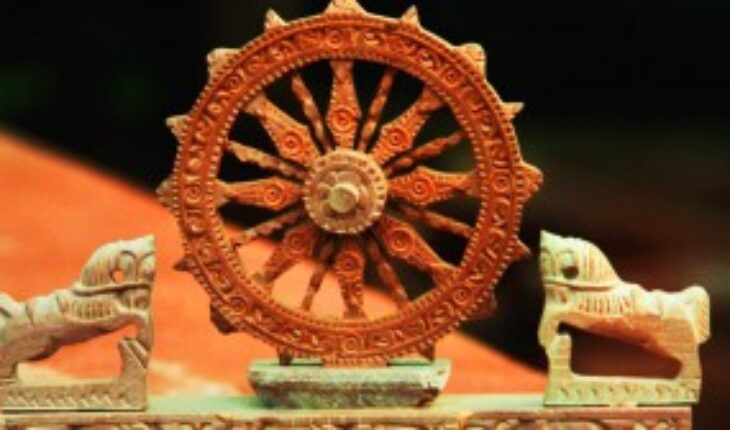By Vijay Singal
Bhagavad Gita in shlokas from 3.8 to 3.16 has highlighted the interdependence of all beings on one another. The man and the divine depend upon each other. Collaboration between these two factors namely the ephemeral and the eternal natures, leads to smooth evolution of the cosmos.
No one can survive without doing action. Every living being has to work at least to maintain its physical body. All the constituents of nature play their role in the meticulously planned scheme of things, devised by the Mother Nature. They take something from and give something-else back to the whole. Everyone, thus, becomes part of the universal wheel of action, which is for ever in motion. Man is required to help in turning this wheel by sincerely performing yagyas. Yagya is the link which promotes co-operation between the human and the celestial worlds.
The religious scriptures have identified different aspects of nature with different deities such as agni devta with fire, vayu devta with wind ; and varun devta with the ocean. These devtas, the celestial gods, are pleased when yagyas (sacrifices) are performed for their sake.
The literal meaning of yagya is a sacrifice offered to a devta either to thank him for his help in the accomplishment of a task or for beseeching him for the fulfilment of a wish. But this is only the superficial meaning. The real significance of the concept of yagya is the internal submission to the Supreme Lord, of whom all the celestial gods are varied forms. Working in whatever position – as a farmer, a worker or a businessman – each person is an integral part of the God’s creation ; and is, therefore, expected to do his duty as a service to Him. When one performs his natural duties in the spirit of sacrifice, offering the fruits of his actions to God, even the mundane activities like eating food are transformed into acts of worship. The food offered as sacrifice and eaten with that reverence becomes prasada, the God’s gift. When one works selflessly, offering all his deeds to the Divine, those deeds themselves become yagya. In its true sense, yagya thus means selfless performance of one’s prescribed duties by renouncing his ego, for the welfare of all beings.
Sri Krishna has revealed that the nature of the sacrifices which need to be performed by the human beings have been described in the Vedas. As the Vedas are manifested by God himself ; therefore, the all-pervading Lord is eternally present in the acts of sacrifice. In other words, the duties described in the Vedas are laid down by the God himself.
While explaining the process of creation of life, Krishna has stated that in the beginning God created man along with the yagyas and told him that through yagyas he would become prosperous ; and the yagyas shall fulfil all his desires. Thus, the essence of the yagyas, is not separable from the the core of creation and the sustenance of life. When man performs yagyas for the deities, they are pleased and they, in turn, please him. Delighted by the performance of one’s allotted work with such devotion, the devtas grant him all the necessities of life. Thus, fostering each other everyone attains to the supreme good. Prosperity reins all around.
The nature has established a perfect system of cyclic existence. Everyone is an integral part of this cosmic wheel of life, which revolves on the principle of mutual support. In the Gita, this circle has been illustrated with the example of rain. Rainfall produces grains. From grains is prepared the food. On food subsist the human beings. The human beings perform yagyas to please the god of rain. The gratified god then causes rain. And so the cycle of action continues.
The human race is an important participant in the great phenomenon of life. Of all the species, only the man has been bestowed with the privilege of choosing his actions consciously. One can either help in smooth rotation of this wheel and thus promote harmony in life ; or create obstructions in its movements and thus produce discord.
Ishvara, the Supreme Lord, has provided man with adequate resources for his comfortable living. But he has also been cautioned that he should expend these treasures of nature judiciously. While partaking these gifts of nature, man is obliged to perform his natural duties, for the furtherance of the cosmic chain. Thus, performance of right action is physical necessity as well as moral obligation for the human beings. That is the sacrifice expected of him.
Sri Krishna has compared those who enjoy the gifts of nature without contributing anything in return, to a thief. Those who do not help in smooth turning of the wheel of life have been called sinful. Those who live only for the delight of their senses, live in vain. On the other hand, those who adhere to the divine law, gain material prosperity and spiritual growth.
To conclude, God has created abundant natural resources for the enjoyment of mankind. But these riches have to be utilised with care and diligence. When the universal system is violated, it punishes in one way or the other.





